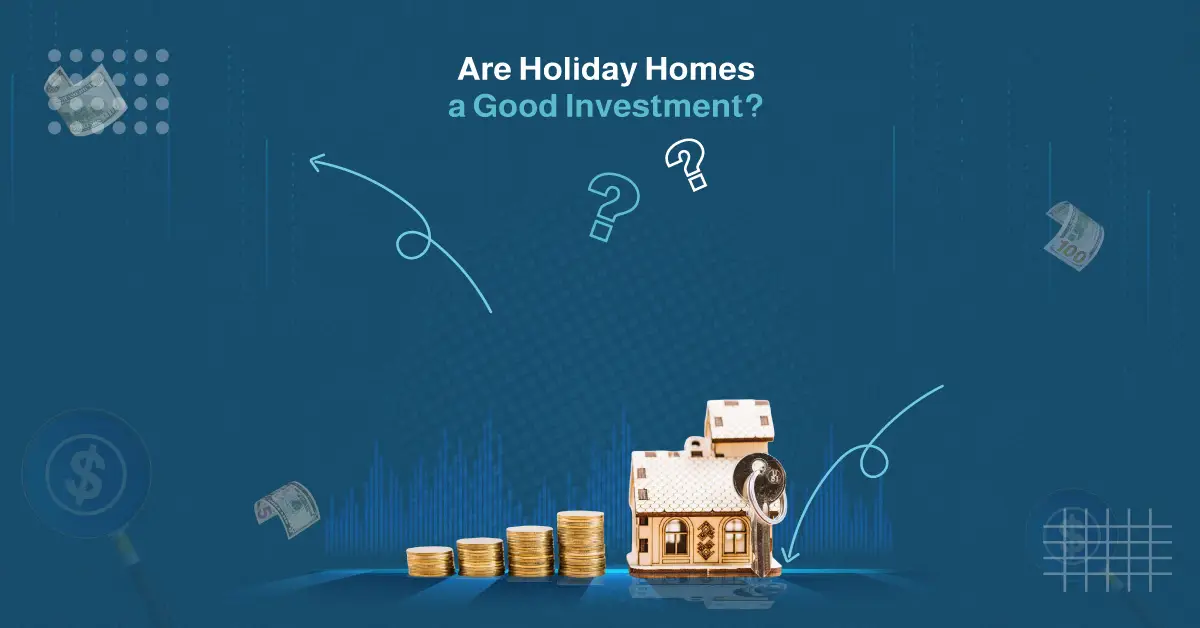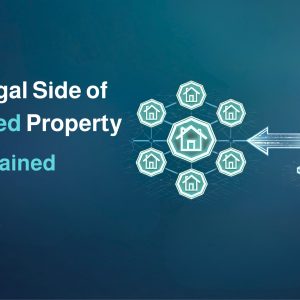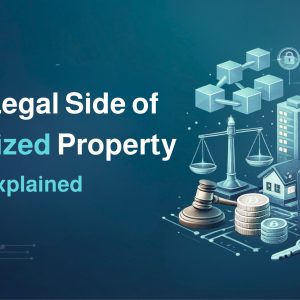Buying a holiday home sounds like a dream — a place to escape whenever you want and a chance to earn income when you’re not there. It’s easy to see why more investors are asking themselves “Are holiday homes are a good investment? Especially as tourism grows across Saudi Arabia and other Gulf destinations. But while the idea is appealing, deciding if it makes financial sense takes careful thought.
Holiday homes can offer two things that attract many investors: personal enjoyment and rental potential. You can use the property yourself during peak seasons and rent it out when you’re away. In popular locations, this can bring in strong short-term rental income, sometimes outperforming long-term leases. Over time, property values in high-demand tourist areas may also appreciate, adding another layer of potential return.
Still, there are challenges. Holiday properties come with seasonal demand swings, maintenance costs, and the need for active management. They can be rewarding, but they’re not a hands-off investment.
You can start investing now from the Gamma Asset Investment Platform
The Appeal of Holiday Homes for Income and Personal Use
One reason so many people ask if holiday homes are a good investment is because they offer something few other assets do: a mix of lifestyle and financial returns. Unlike traditional rental properties, holiday homes give you a personal space to enjoy while still generating income when you’re not using them.
For many investors, that combination is hard to beat. A well-located holiday property can produce strong rental income during peak
seasons, often at higher nightly rates than long-term rentals. At the same time, you can block out dates for personal use, turning your investment into a part-time retreat.
Key benefits of owning a holiday home include:
- Dual purpose – Personal vacation spot and income-generating asset.
- High seasonal demand – Popular tourist destinations can bring in premium short-term rental rates during peak travel periods.
- Appreciation potential – Properties in established or up-and-coming vacation areas can grow in value over time.
- Flexible use – Owners can decide how often to rent the property out or keep it for themselves.
- Diversification – Holiday homes add a different type of real estate exposure to a portfolio, spreading risk across asset types.
These benefits are what make holiday homes attractive to both experienced and first-time investors. Still, they work best for people who are comfortable managing the responsibilities that come with owning a property, something we’ll explore later in this blog.
Market Trends Impacting Holiday Home Investments In 2025
As more people ask if holiday homes are a good investment, it helps to look at what’s happening in the market right now. In 2025, several trends are shaping the appeal and profitability of holiday properties for 2026, especially across Saudi Arabia and the wider Gulf region.
Tourism Growth Is Driving Demand
Saudi Arabia’s Vision 2030 plan has made tourism a key pillar of economic growth. Cities like Riyadh, Jeddah, and AlUla are attracting rising numbers of regional and international visitors. This is boosting demand for short-term rental accommodation and creating new opportunities for holiday home owners to earn consistent income during the high season.
Flexible Work Is Extending Travel Seasons
The rise of remote and hybrid work is also changing how people travel. Many visitors now stay for longer periods, especially in coastal or resort-style destinations. This shift spreads demand more evenly throughout the year, helping investors reduce the risk of long vacancies between bookings.
Tech Platforms Are Expanding Reach
Booking platforms and property management services make it easier to market holiday homes globally. This increases occupancy rates and allows owners to adjust pricing dynamically based on demand, which can raise overall returns.
Supply Is Catching Up In Prime Areas
In high-demand Gulf destinations, more developers are building vacation-oriented apartments and villas. While this expands options for investors, it also means competition is growing, making location and property quality more important than ever.
Keeping these trends in mind can help you assess how well holiday homes might fit into your strategy and what kind of returns are realistic in today’s market.
Holiday Homes vs Other Real Estate Types: Apartments, Villas, And Commercial Property
When investing in a holiday home, it helps to compare them with other common property types. Each offers unique advantages and challenges, especially when it comes to income potential, upkeep, and long-term value.
Here’s a side-by-side look:
| Property Type | Typical Use | Income Potential | Maintenance Needs | Risk Level |
| Holiday Homes | Short-term rentals, seasonal stays | High during peak seasons | Moderate (frequent upkeep) | Medium (seasonal demand) |
| Apartments | Long-term rentals, city tenants | Steady monthly income | Low to moderate | Low (consistent demand) |
| Villas | Luxury or family rentals | High if in prime locations | High (large properties) | Medium (location-driven) |
| Commercial Property | Offices, shops, warehouses | Long-term leases, stable | Low to moderate | Medium to high (market shifts) |
Key takeaways:
- Holiday homes can generate higher short-term returns but depend heavily on seasonal demand and active management.
- Apartments offer steady income with fewer operational demands, making them attractive for passive investors.
- Villas can deliver strong rental yields and appreciation but come with higher maintenance costs.
- Commercial properties often bring long-term stability but are more affected by broader economic cycles.
Balancing holiday homes with other property types can help reduce risk and create a more stable income flow throughout the year.
Risks To Consider: Vacancies, Upkeep, And Fluctuating Demand
While asking are holiday homes a good investment, it’s just as important to look at the risks involved. Holiday properties can deliver attractive returns, but they also come with challenges that may affect profitability and require active planning.
Here are the main risks to keep in mind:
- Seasonal Vacancies
Holiday homes often depend on peak travel periods to generate most of their income. During off-seasons, you may face long gaps without bookings, which can make it harder to cover expenses. This makes location and seasonality key factors when choosing a property. - High Upkeep and Operating Costs
Because guests expect fully furnished, well-maintained spaces, holiday homes can be more expensive to manage. Cleaning, repairs, utilities, and furnishing replacements add up quickly, especially with frequent guest turnover. - Fluctuating Demand and Pricing
Market demand can shift due to travel trends, economic conditions, or new competition in the area. This can affect occupancy rates and the ability to charge premium prices. Owners often need to adjust pricing and marketing strategies regularly to stay competitive. - Regulatory and Tax Considerations
Some regions impose restrictions, permits, or special taxes on short-term rental properties. These can reduce profitability if not factored in before buying. It’s essential to understand local rules before committing to a purchase.
Holiday homes can still be profitable despite these risks, but they require more active oversight and financial planning than long-term rentals.
More topics can be read on the Gamma blog
Making Holiday Homes Work For Your Investment Portfolio
Holiday homes can offer a unique mix of lifestyle and financial benefits. They allow you to enjoy a personal getaway while generating income through short-term rentals, and in high-demand areas, property values may appreciate over time. This dual-purpose appeal is what draws many investors to consider: are holiday homes a good investment.
However, they also come with challenges. Seasonal vacancies, maintenance costs, and fluctuating demand mean that holiday properties often require more active management than long-term rentals or other real estate types. Location, property quality, and a clear strategy are key to making them work effectively.
For investors looking to balance risk and diversify, platforms like Gamma Assets offer real estate-backed opportunities starting from small amounts. This allows you to gain exposure to property investments without the full responsibilities of owning a holiday home, complementing traditional property strategies.
Ultimately, deciding if holiday homes fit into your portfolio comes down to your goals, budget, and willingness to manage the property. With careful planning and realistic expectations, they can be a rewarding addition, offering both personal enjoyment and the potential for strong returns.
FAQs
- Are holiday home investments halal in Saudi Arabia?
Yes, holiday home investments can be halal if they comply with Islamic finance principles. This means avoiding interest-based loans and ensuring the property is used for permissible purposes. Many investors choose to pay in full or use Sharia-compliant financing options structured around profit-sharing instead of interest. Consulting a financial advisor familiar with Islamic investing can help ensure compliance. - How profitable are holiday homes in popular Gulf destinations?
Profitability depends on location, property type, and demand. In cities like Riyadh, Dubai, and Jeddah, short-term rental income can be strong during peak seasons, often exceeding the returns of traditional long-term rentals. Additionally, properties in high-demand vacation spots can appreciate over time, creating a combination of rental income and capital growth. Investors should account for maintenance costs, vacancy periods, and taxes to estimate net returns accurately. - Can beginners start investing in holiday properties with modest capital?
Buying a full holiday home usually requires significant upfront capital, but beginners can still participate through platforms like Gamma Assets. These platforms allow fractional investments in real estate-backed projects, giving smaller investors access to property markets. This is a practical way to diversify and gain exposure to holiday homes without taking on the full financial and management responsibility of owning an entire property.













